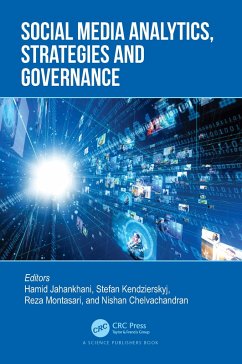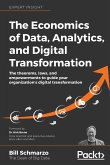Social media has spread rapidly on the global stage, driving consumers' attention and influence, both consciously and subconsciously. Whilst this type of platform may have been initially designed as a tool for open communication and expression, it is also being utilized as a digital tool, with widescale use cases. The intelligence explosion, information overload and disinformation play a significant part regarding individual, group and country perceptions. The complex nature of this data explosion created an increasing demand and use of artificial intelligence (AI) and machine learning (ML), to help provide 'big insights' to 'big data'. AI and ML enable the analysis and dissemination of vast amounts of data, however the ungoverned pace at which AI and autonomous systems have been deployed, has created unforeseen problems. Many algorithms and AI systems have been trained on limited or unverified datasets, creating inbuilt and unseen biases. Where these algorithmic tools have been deployed in high impact systems, there are documented occurrences of disastrous decision making and outcomes that have negatively impacted people and communities. Little to no work had been conducted in its vulnerability and ability to exploit AI itself. So, AI and autonomous systems, whilst being a force for societal good, could have the potential to create and exacerbate societies greatest challenges. This is a cohesive volume that addresses challenging problems and presents a range of innovative approaches and discussion.
Hinweis: Dieser Artikel kann nur an eine deutsche Lieferadresse ausgeliefert werden.
Hinweis: Dieser Artikel kann nur an eine deutsche Lieferadresse ausgeliefert werden.








